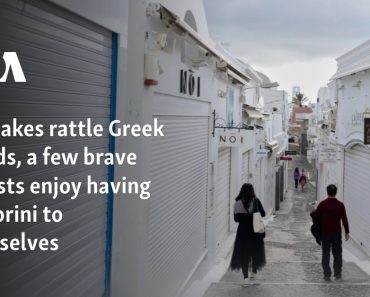Turkey’s state-run broadcaster, Turkish Radio and Television (TRT), is examining a song to be performed by a Greek singer at this year’s Eurovision Song Contest due to its alleged reference to a Greek “genocide” by Turks and is considering filing a complaint, Eurovision Turkey has announced.
The 69th Eurovision Song Contest will be held in Basel in May.
Twenty-two-year-old Greek singer Klavdia Papadopoulou is set to represent Greece in the contest with the song “Asteromata” (Starry-Eyed).
The lyrics of the song have led to accusations in Turkey that they include references to the massacre of ethnic Greeks living along the Black Sea coast by the Ottoman Turks during World War I.
Greek recognized the mass killings between 1914 and 1923 as a “genocide” in 1994 while Turkey strongly denies the accusation, claiming that the killings took place during a time of war and civil strife rather than as part of a systematic extermination campaign.
According to an announcement by Eurovision Turkey on X on Wednesday, TRT is examining the song and if it determines that the song contains references to the Pontic Greek Genocide, it will file an official complaint with the European Broadcasting Union (EBU), which owns and operates the Eurovision networks.
However, Greek newspaper Kathimerini reported on Wednesday that Klavdia, who is of Pontic descent, denied the claims about the song following her victory in Greece’s national final on January 30.
She said that “Asteromata” is not about any specific historical event but is instead inspired by all those forced to flee their homeland due to war and conflict.
Neighbors and NATO allies Turkey and Greece have been at odds for decades over a series of issues, including territorial claims, and have come to the brink of war three times in the last half-century.
There have recently been efforts from both countries aimed at reducing tensions and putting their relations back on track.







